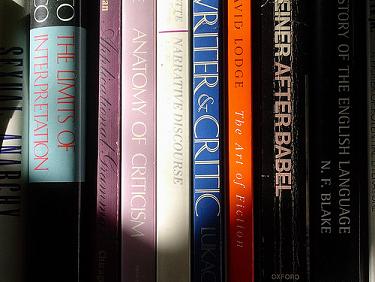To mark the centennial of Northrop Frye’s birth a week ago, I want to register — not quite a disagreement with Martin Knelman’s lament here about the lack of acclaim for our great Canadian literary critic. More like a counterpoint.
We live in an era of gradations of fame. You used to be just famous or not. Cary Grant was famous. My granddad wasn’t. I became aware of the rise of degrees when the late Canadian writer Matt Cohen mentioned a writer we knew who’d become “really really really really famous.” You can be minimally famous, nationally vs. globally famous (Jim Cuddy vs. Leonard Cohen) etc. People explain that they’re famous when you’ve never heard of them. It’s a bit like religiosity. McMaster religion prof Louie Greenspan says when he was a Jewish seminarian, he felt pious wrapping t’fillin (ritual objects) around his arm and forehead at morning prayers. Then he noticed a guy beside him applying two sets of t’fillin. There’s always someone who’s more so.
There’s also being famous enough to have your lack of fame bemoaned in Canada’s largest newspaper because you’re not famous enough. We’re talking a complex scale here.
But I had a high-school math teacher named R.G. (Pete) Colgrove who knew Frye and may have been the only person who thought Frye’s fame did him in.
He appears in Frye’s letters and diaries of the 1920s and ’30s, when they both came of age. He’d have been called a cutup then. He was goofy and eccentric. He arrived one day in Moncton, Frye’s hometown, “looking as though he had made himself up for a vaudeville act.” He told Frye he’d ridden a train from Quebec City “in the tool chest” behind the coal car, wearing overalls on top of his suit. In one entry, he teaches “Norrie” to dance.
But here’s the thing. Colgrove was in disguise, not just then but as a high-school teacher for decades after World War II. That’s because he was a true truth-seeker. He belonged to an esoteric group that followed the teachings of G.I. Gurdjieff, a Russian thinker who wanted to arouse people from their “waking sleep.” They learned dance movements meant to release insight and travelled to sources of wisdom in the Orient.
Colgrove slipped me books to read that I hid behind French or history texts in class. Every few years he gave an amazing lecture on the Fourth Dimension in the cafeteria. He’d be giddy for days before, and wore a Salvador Dali time-bending tie. When I lived in New York, he took me to visit Gurdjieff’s successor, Mme. de Hartmann, who had sketches by the Russian abstract painter Kandinsky thumbtacked to her kitchen wall.
He felt truth and enlightenment are easily diverted by distractions like fame or success. So he chose teaching at a suburban high school over a university. He said he could still see the kids’ “real” selves when they arrived, but those were soon concealed by masks and deception. Socialization was desensitization. He wanted nothing to do with normal success. In later years he agreed to head the math department only if everyone understood he had no interest in improving math teaching at the school.
After retirement, he moved to the New Mexico desert, mountain climbed and co-edited a book on the mystically inclined Group of Seven painter Lawren Harris. He probably felt Frye had potential, but got sidetracked by success and celebrity — even if that didn’t include a star on Canada’s Walk of Fame or comparable markers. Poor Norrie, perhaps if he’d been less acclaimed, he’d have really figured some things out.
I first heard Frye’s name from the Israeli Bible teacher Nehama Leibowitz. She thought Frye was wrong about literature but you could learn from him. She was eclectic and also enjoyed Reader’s Digest, especially a feature called The Most Unforgettable Character I Ever Met. She liked speculating on who she’d write about if she was asked. If I had the chance, and the column still existed, I’d definitely write about her, or Pete Colgrove. It would he hellishly hard to choose. But Frye — even if I’d met him? Not a chance.
This article was first published in the Toronto Star.
Photo courtesy of aulusgellius on Flickr.



